- Home
- Site Index
- About Me
-
My Books
- Book List & Themes
- Strictly for Adults Novels >
-
Tales from Portlaw
>
- No Need to Look for Love
- 'The Love Quartet' >
-
The Priest's Calling Card
>
- Chapter One - The Irish Custom
- Chapter Two - Patrick Duffy's Family Background
- Chapter Three - Patrick Duffy Junior's Vocation to Priesthood
- Chapter Four - The first years of the priesthood
- Chapter Five - Father Patrick Duffy in Seattle
- Chapter Six - Father Patrick Duffy, Portlaw Priest
- Chapter Seven - Patrick Duffy Priest Power
- Chapter Eight - Patrick Duffy Groundless Gossip
- Chapter Nine - Monsignor Duffy of Portlaw
- Chapter Ten - The Portlaw Inheritance of Patrick Duffy
- Bigger and Better >
- The Oldest Woman in the World >
-
Sean and Sarah
>
- Chapter 1 - 'Return of the Prodigal Son'
- Chapter 2 - 'The early years of sweet innocence in Portlaw'
- Chapter 3 - 'The Separation'
- Chapter 4 - 'Separation and Betrayal'
- Chapter 5 - 'Portlaw to Manchester'
- Chapter 6 - 'Salford Choices'
- Chapter 7 - 'Life inside Prison'
- Chapter 8 - 'The Aylesbury Pilgrimage'
- Chapter 9 - Sean's interest in stone masonary'
- Chapter 10 - 'Sean's and Tony's Partnership'
- Chapter 11 - 'Return of the Prodigal Son'
- The Alternative Christmas Party >
-
The Life of Liam Lafferty
>
- Chapter One: ' Liam Lafferty is born'
- Chapter Two : 'The Baptism of Liam Lafferty'
- Chapter Three: 'The early years of Liam Lafferty'
- Chapter Four : Early Manhood
- Chapter Five : Ned's Secret Past
- Chapter Six : Courtship and Marriage
- Chapter Seven : Liam and Trish marry
- Chapter Eight : Farley meets Ned
- Chapter Nine : 'Ned comes clean to Farley'
- Chapter Ten : Tragedy hits the family
- Chapter Eleven : The future is brighter
-
The life and times of Joe Walsh
>
- Chapter One : 'The marriage of Margaret Mawd and Thomas Walsh’
- Chapter Two 'The birth of Joe Walsh'
- Chapter Three 'Marriage breakup and betrayal'
- Chapter Four: ' The Walsh family breakup'
- Chapter Five : ' Liverpool Lodgings'
- Chapter Six: ' Settled times are established and tested'
- Chapter Seven : 'Haworth is heaven is a place on earth'
- Chapter Eight: 'Coming out'
- Chapter Nine: Portlaw revenge
- Chapter Ten: ' The murder trial of Paddy Groggy'
- Chapter Eleven: 'New beginnings'
-
The Woman Who Hated Christmas
>
- Chapter One: 'The Christmas Enigma'
- Chapter Two: ' The Breakup of Beth's Family''
- Chapter Three: From Teenager to Adulthood.'
- Chapter Four: 'The Mills of West Yorkshire.'
- Chapter Five: 'Harrison Garner Showdown.'
- Chapter Six : 'The Christmas Dance'
- Chapter Seven : 'The ballot for Shop Steward.'
- Chapter Eight: ' Leaving the Mill'
- Chapter Ten: ' Beth buries her Ghosts'
- Chapter Eleven: Beth and Dermot start off married life in Galway.
- Chapter Twelve: The Twin Tragedy of Christmas, 1992.'
- Chapter Thirteen: 'The Christmas star returns'
- Chapter Fourteen: ' Beth's future in Portlaw'
-
The Last Dance
>
- Chapter One - ‘Nancy Swales becomes the Widow Swales’
- Chapter Two ‘The secret night life of Widow Swales’
- Chapter Three ‘Meeting Richard again’
- Chapter Four ‘Clancy’s Ballroom: March 1961’
- Chapter Five ‘The All Ireland Dancing Rounds’
- Chapter Six ‘James Mountford’
- Chapter Seven ‘The All Ireland Ballroom Latin American Dance Final.’
- Chapter Eight ‘The Final Arrives’
- Chapter Nine: 'Beth in Manchester.'
- 'Two Sisters' >
- Fourteen Days >
-
‘The Postman Always Knocks Twice’
>
- Author's Foreword
- Contents
- Chapter One
- Chapter Two
- Chapter Three
- Chapter Four
- Chapter Five
- Chapter Six
- Chapter Seven
- Chapter Eight
- Chapter Nine
- Chapter Ten
- Chapter Eleven
- Chapter Twelve
- Chapter Thirteen
- Chapter Fourteen
- Chapter Fifteen
- Chapter Sixteen
- Chapter Seventeen
- Chapter Eighteen
- Chapter Nineteen
- Chapter Twenty
- Chapter Twenty-One
- Chapter Twenty-Two
-
Celebrity Contacts
-
Thoughts and Musings
- Bereavement >
- Nature >
-
Bill's Personal Development
>
- What I'd like to be remembered for
- Second Chances
- Roots
- Holidays of Old
- Memorable Moments of Mine
- Cleckheaton Consecration
- Canadian Loves
- Mum's Wisdom
- 'Early life at my Grandparents'
- Family Holidays
- 'Mother /Child Bond'
- Childhood Pain
- The Death of Lady
- 'Soldiering On'
- 'Romantic Holidays'
- 'On the roof'
- Always wear clean shoes
- 'Family Tree'
- The importance of poise
- 'Growing up with grandparents'
- Love & Romance >
- Christian Thoughts, Acts and Words >
- My Wedding
- My Funeral
- Audio Downloads
- My Singing Videos
- Bill's Blog
- Contact Me
Chapter Twelve: ‘The First World War Years’
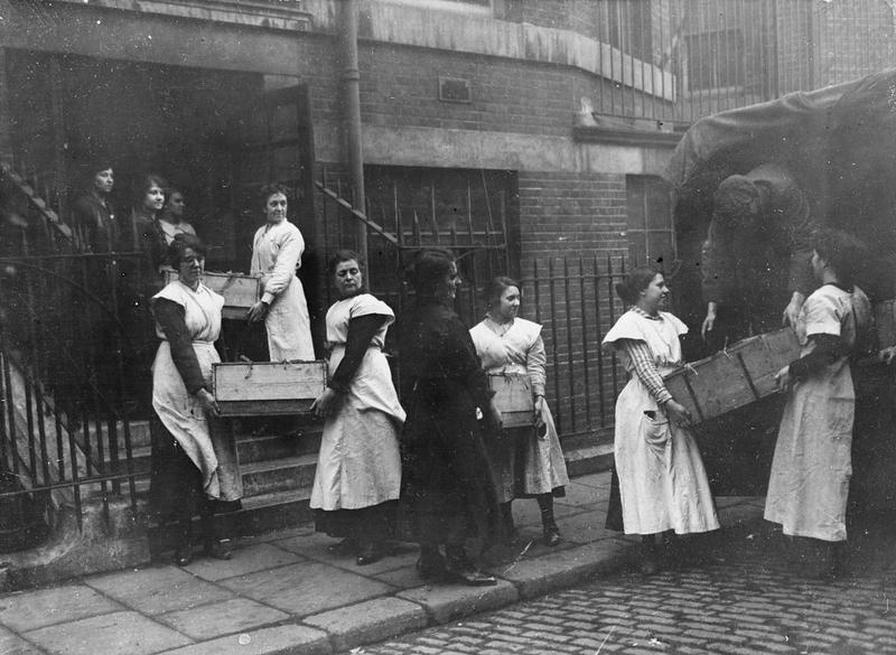
The war between England and Germany had been ongoing for almost two years by the time Mary and her daughters had started to live in Liverpool, and though food rationing had not fully arrived yet, part rationing was slowly creeping in, making certain products harder to come by.
With their men in uniform fighting the Germans in Europe, the war years provided ample work for female civilians on the home front, providing they were prepared to do a man's job and get their hands dirty. Much of the work though was limited in scope. Many women in Liverpool remained determined to do their bit for England so that the country could emerge victorious over the Hun and provide a land fit to live in, where freedom of speech and freedom from want was the expectation and entitlement of all.
With their men in uniform fighting the Germans in Europe, the war years provided ample work for female civilians on the home front, providing they were prepared to do a man's job and get their hands dirty. Much of the work though was limited in scope. Many women in Liverpool remained determined to do their bit for England so that the country could emerge victorious over the Hun and provide a land fit to live in, where freedom of speech and freedom from want was the expectation and entitlement of all.
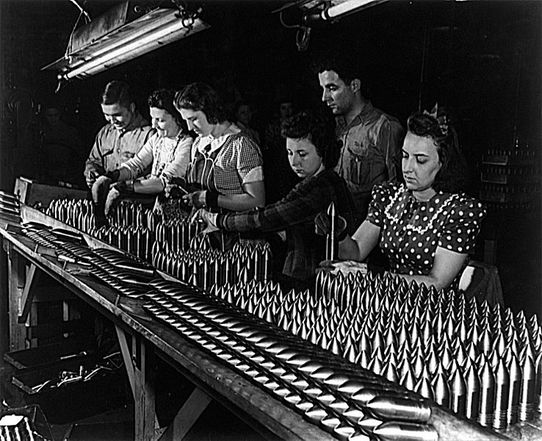
It was widely said that this war would be a war to end all wars. The way that many women contributed to the war effort was by working in the munition and other factories across Merseyside and in all the other cities of the nation.
This war was the first truly mechanised war and needed men, women, machines, ships, planes, submarines, cruisers, destroyers, merchant vessels, tanks and an ample supply of munitions to help fight it. Millions of shells rained down from the heavens on both sides, and dozens of munition factories in Liverpool were required to keep supplies heading towards the front line.
This war was the first truly mechanised war and needed men, women, machines, ships, planes, submarines, cruisers, destroyers, merchant vessels, tanks and an ample supply of munitions to help fight it. Millions of shells rained down from the heavens on both sides, and dozens of munition factories in Liverpool were required to keep supplies heading towards the front line.
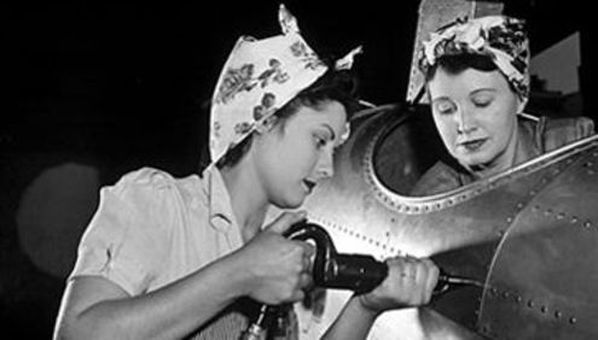
Liverpool was home to eight munition factories, which operated round the clock. Approximately 80% women staffed these factories. Factories supplying the soldiers were located in Edge Lane, the Cunard works at Primrose Road, North Haymarket, Lambert Road Tramway Depot, Aintree National Filling Factory, Clyde Street, Brasenose Road in Bootle and the Litherland Explosives Factory.
It was dangerous work in the munition factories and women sometimes died of poisoning from the chemicals used to make weaponry, along with other workplace injuries such as accidental explosions. Whatever the rest of the country did towards the war effort, Liverpool and its men and women most certainly did their bit to pull their weight in the nation’s battle!
xxxxxxxxxxxx
It was dangerous work in the munition factories and women sometimes died of poisoning from the chemicals used to make weaponry, along with other workplace injuries such as accidental explosions. Whatever the rest of the country did towards the war effort, Liverpool and its men and women most certainly did their bit to pull their weight in the nation’s battle!
xxxxxxxxxxxx
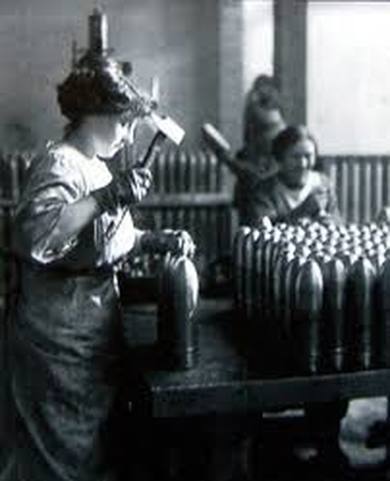
Over the next eight months, Mary and her two children settled into life at the home of Doris Storey. It took Mary around three weeks after placing her babies on the bottle before she felt reassured enough to seek work; leaving Doris to look after the girls in her absence.
Once Mary had started her search for work, it became evident that she would find it much easier were she to get a job in one of the munition factories. Within two days of applying for a job, ‘The Litherland Explosives Factory’, which made bullets and tank shells, eventually employed her.
With regard to the supervision of her two girls in her absence, Doris never seemed to see her daily charge of them as being a chore. In many ways, she loved doing things for the girls and looking after them gave her a feeling of immense pleasure and satisfaction. This role made her a mother substitute in the absence of their natural mother, but it also provided the childless Doris with the opportunity to exercise her own maternal instincts; instincts which had laid dormant for far too long, instincts that welcomed satisfying.
Once Mary had started her search for work, it became evident that she would find it much easier were she to get a job in one of the munition factories. Within two days of applying for a job, ‘The Litherland Explosives Factory’, which made bullets and tank shells, eventually employed her.
With regard to the supervision of her two girls in her absence, Doris never seemed to see her daily charge of them as being a chore. In many ways, she loved doing things for the girls and looking after them gave her a feeling of immense pleasure and satisfaction. This role made her a mother substitute in the absence of their natural mother, but it also provided the childless Doris with the opportunity to exercise her own maternal instincts; instincts which had laid dormant for far too long, instincts that welcomed satisfying.

Without knowing it at the time of their first meeting, Mary and Doris was to share far more in common with each other than they could ever have imagined. Doris and her army husband, Patrick, had only been wed two years, and before they’d had sufficient time to settle down to experiencing life as a married couple, war was declared.
Within the month, Patrick received his call up papers. With regard to the bedroom side of their union, this had never been as satisfactory as it ought to have been between man and wife. Doris undoubtedly loved her husband to bits, but sexually they never quite hit it off. Doris knew deep down that their sexual incompatibility was an issue that would need addressing when Patrick eventually returned from war, were their marriage ever to thrive.
xxxxxxxxxxxx
Within the month, Patrick received his call up papers. With regard to the bedroom side of their union, this had never been as satisfactory as it ought to have been between man and wife. Doris undoubtedly loved her husband to bits, but sexually they never quite hit it off. Doris knew deep down that their sexual incompatibility was an issue that would need addressing when Patrick eventually returned from war, were their marriage ever to thrive.
xxxxxxxxxxxx
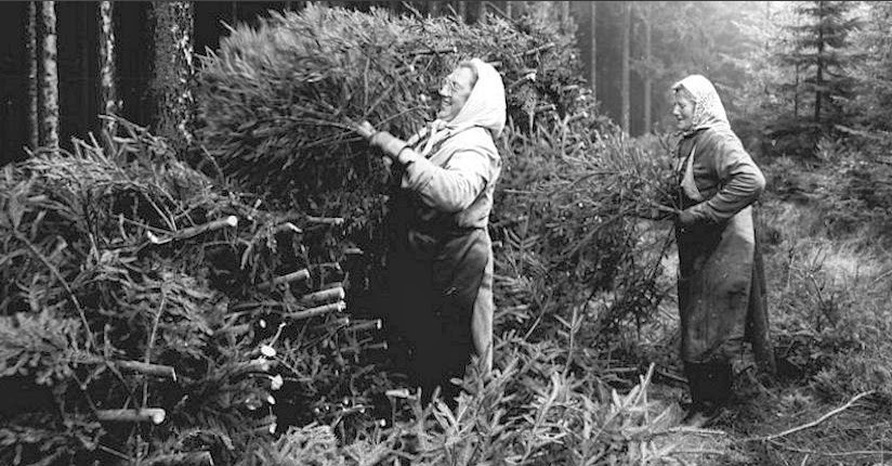
By the time Christmas, 1917 arrived at 33, Silk Street, Doris, Mary and the two small sisters operated more like a closely-knit family unit as opposed to a relationship between benevolent proprietor and grateful lodger and mother of two. The children loved looking for a fresh Christmas tree with their mum and 'Auntie Doris.' Never once, did Doris complain about supervising the girls during Mary’s absence at work and within a short space of time, Mary and the girls had all their meals in the privacy of Doris’ private part of the house on the ground floor. Indeed, the only time they now spent in their own room was on a night-time when they slept.
Within a matter of months, Mary no longer felt anxious at the start of her factory shift when she left the children with her friend Doris for the day. She knew that they would be loved and well cared for in her absence.
Within a matter of months, Mary no longer felt anxious at the start of her factory shift when she left the children with her friend Doris for the day. She knew that they would be loved and well cared for in her absence.

As for Doris, she enjoyed having Mary and the girls living with her, far more than her heart would initially allow her to acknowledge. Since her husband Patrick had gone off to war, she had only seen him once. This had been after him being granted a 48-hour pass, when he surprisingly returned home one weekend on leave.
Doris was over the moon to see him, but worried so much about Patrick when the time came for him to return to the front line. She told Mary, “The change in Patrick was great …. not so much how he looked, though he was much gaunter, but more how he acted, not just around me, but anyone he met that weekend. Try as I may to get him to tell me what it was like being at the front, he just refused to say, apart from muttering that I could never understand. He said that no one back home could ever understand, as we’d have to have been there to know what it was really like!”
Doris was over the moon to see him, but worried so much about Patrick when the time came for him to return to the front line. She told Mary, “The change in Patrick was great …. not so much how he looked, though he was much gaunter, but more how he acted, not just around me, but anyone he met that weekend. Try as I may to get him to tell me what it was like being at the front, he just refused to say, apart from muttering that I could never understand. He said that no one back home could ever understand, as we’d have to have been there to know what it was really like!”

“I suppose there are things men have to do in war that shames them in peace time when they think upon it?” Mary replied sympathetically.
“I know,” Doris said, “but I sometimes think they forget how hard it is back on the home front also. It’s hard not knowing if our loved ones are alive or dead, captured by the enemy, wounded or abandoned in some deserted ditch. If there’s a hardness to be had in it all, Mary, it lies in the ‘not knowing’; that is hardest of all! ‘Not knowing’ how the battle is really going and whether or not the news that the radio speaks is true or merely government propaganda. ‘Not knowing’ if the food we have in the larder today will last the week out, and ‘not knowing’ if the Zeppelins’ night time bombs will land on us in our beds tonight. ‘Not knowing’ if the telegraph boy who comes down the street with his official telegrams in their sinister brown envelopes, those letters of loss indicating that a son, brother or husband has died or has gone missing in action will stop at your door, or the door of your neighbours, with the heart-breaking news you have long feared, but dare not voice! All this ‘not knowing’, Mary, is driving me mad!”
“I know,” Doris said, “but I sometimes think they forget how hard it is back on the home front also. It’s hard not knowing if our loved ones are alive or dead, captured by the enemy, wounded or abandoned in some deserted ditch. If there’s a hardness to be had in it all, Mary, it lies in the ‘not knowing’; that is hardest of all! ‘Not knowing’ how the battle is really going and whether or not the news that the radio speaks is true or merely government propaganda. ‘Not knowing’ if the food we have in the larder today will last the week out, and ‘not knowing’ if the Zeppelins’ night time bombs will land on us in our beds tonight. ‘Not knowing’ if the telegraph boy who comes down the street with his official telegrams in their sinister brown envelopes, those letters of loss indicating that a son, brother or husband has died or has gone missing in action will stop at your door, or the door of your neighbours, with the heart-breaking news you have long feared, but dare not voice! All this ‘not knowing’, Mary, is driving me mad!”

Doris started to cry. It was the first time that Mary had seen her cry and it pained to see her friend weep. Mary put her arms around Doris and wiped her eyes, kissing her gently as she did. Doris just held on tight, as if to make a magic moment last a few seconds longer and moved her lips closer to those of Marys'.
Doris had openly cried with the thought of her husband’s possible death and the voicing of all her uncertainties of ‘not knowing.’ What had really made her tears harder to express however, was the hidden guilt each teardrop secretly contained.
Doris had openly cried with the thought of her husband’s possible death and the voicing of all her uncertainties of ‘not knowing.’ What had really made her tears harder to express however, was the hidden guilt each teardrop secretly contained.
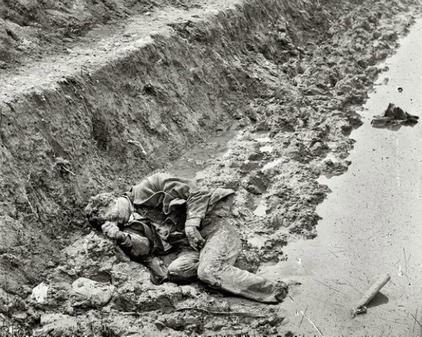
Doris loved her husband and had greatly missed him once he went to war. She had constantly worried about his possible whereabouts, fearing his capture by the enemy. When asleep, she frequently dreamt of him lying injured in the battle trenches or even dying on foreign soil, having been gunned down by the enemy or blown to bits by a mortar shell!
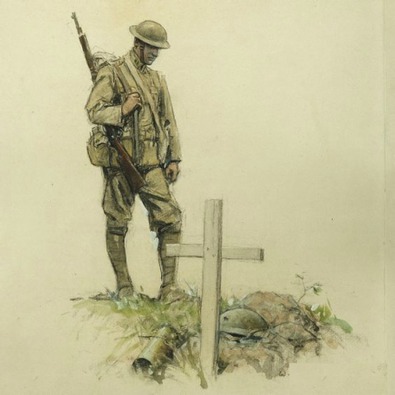
Ever since Mary and the children had come into her life however, a part of Doris, which she tried to suppress, was happy that Patrick was not here with her now. Had he been so, Doris knew that his presence, while producing immense relief, would spoil her pleasure. Part of Doris made her fear his death on the battlefront, but another part of her would more readily enable her to accept the status of ‘widowhood’ which would inevitably follow such loss!
This was the greatest of all ironies and it plagued Doris immeasurably, making her as guilty as any wife had ever been who had dared to consider in her most secret of thoughts, the death of a good man as ‘a way out!’ Unless she was to continue deceiving herself a moment longer however, Doris had to reconcile herself with the uncomfortable knowledge that her husband Patrick could best maintain her happiness by his continued absence; while it was Mary and her daughters who were now wholly responsible for making her happy to wake up each morning and face the day ahead!
This was the greatest of all ironies and it plagued Doris immeasurably, making her as guilty as any wife had ever been who had dared to consider in her most secret of thoughts, the death of a good man as ‘a way out!’ Unless she was to continue deceiving herself a moment longer however, Doris had to reconcile herself with the uncomfortable knowledge that her husband Patrick could best maintain her happiness by his continued absence; while it was Mary and her daughters who were now wholly responsible for making her happy to wake up each morning and face the day ahead!
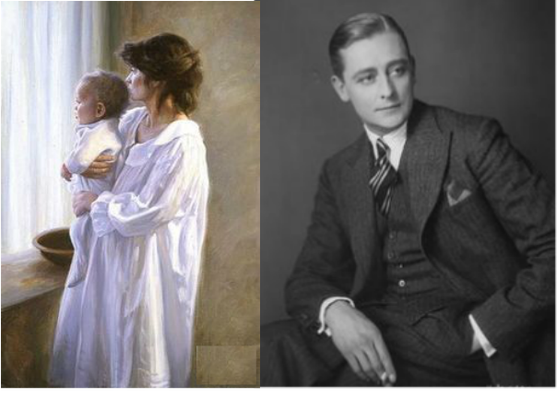
Later that month, one evening after Mary had returned from her factory shift and the girls had been put to bed for the night, Doris started talking to Mary about her upbringing. Mary learned that Doris had been an only child who had experienced doting parents throughout her childhood. In many ways, Doris had lived a sheltered existence. Her father in particular, though loving, was reportedly a strict man who managed Doris’ life from the start to the end of each day once she had started to walk, talk and think out loud.
Doris’ dad had worked as an accountant with one of the law firms in the city for most of his life and received a good enough level of remuneration to make him salaried and of middle class status. The family never wanted for anything material and any spare money her father had, he used to buy stocks and shares.
Doris’ dad had worked as an accountant with one of the law firms in the city for most of his life and received a good enough level of remuneration to make him salaried and of middle class status. The family never wanted for anything material and any spare money her father had, he used to buy stocks and shares.

Doris was strongly discouraged from mixing with other children during her early childhood years, most of whom, whose lifestyles and background circumstances, her father disapproved. She was allowed a pedigree dog to play with after her mother had pleaded with her husband to allow her one. As her father believed that a dumb animal would not influence her adversely away from good conduct, he gave into the entreaty of his wife on this single occasion, but never again.

The older Doris got, the more her father sought to control her and the less influence her mother was able to bring to bear, regarding her ongoing development and interests. Overall, Reginald Nuttall believed other children to represent the threat of being a bad influence on his only daughter. Doris always had to return home from school within half an hour of finishing her lessons for the day; and having a brief stopover at a friend’s house on the way home was strictly forbidden. All of her homework, even after Doris had entered her teenage years, was carried out in her own home, alone.
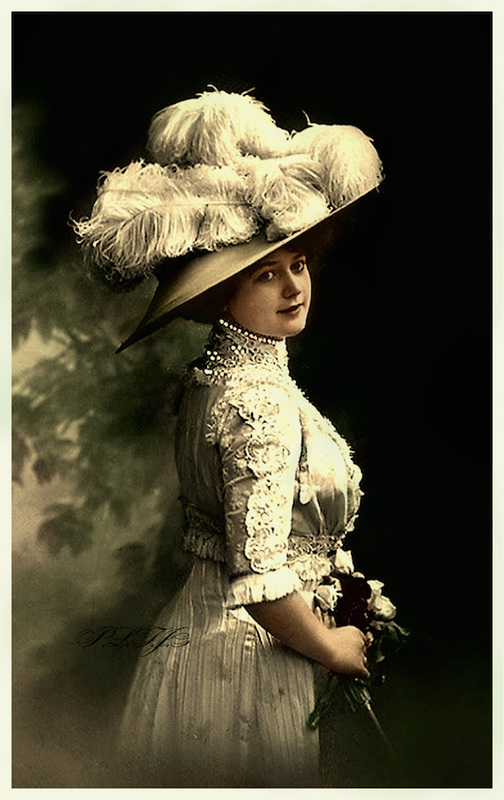
As for her mother’s part in her upbringing, Mary learned that such was no more or less than could be expected from any other mother of the time. She being a wife of the times, Mrs Nuttall naturally did what her husband expected of her. Her role as mother, and the times they lived in, dictated that she raised Doris the way that her husband, Reginald wanted the child to be brought up; his way and no other! The only decisions that Doris' mother was able to make, concerned her wardrobe and toiletries. All other matters remained strictly in the hands of her husband, the master of the household.
33 Silk Street was a large, six bed roomed Victorian house and had been the family home of the Nuttall family since the reign of Queen Victoria. This large house had been passed down through inheritance from generation to generation. Doris had never lived elsewhere. The house was much grander in size than the parents of Doris ever required for their own personal use, and would have been way beyond the monetary reach of her father’s purse, had he ever needed to purchase the property. While he lived though, Reginald Nuttall would never have considered selling his family home. To do so, would have been tantamount to admitting that he had been born into a lower social station than that of his father or his grandfather had enjoyed!
xxxxxxxxxxxx
33 Silk Street was a large, six bed roomed Victorian house and had been the family home of the Nuttall family since the reign of Queen Victoria. This large house had been passed down through inheritance from generation to generation. Doris had never lived elsewhere. The house was much grander in size than the parents of Doris ever required for their own personal use, and would have been way beyond the monetary reach of her father’s purse, had he ever needed to purchase the property. While he lived though, Reginald Nuttall would never have considered selling his family home. To do so, would have been tantamount to admitting that he had been born into a lower social station than that of his father or his grandfather had enjoyed!
xxxxxxxxxxxx
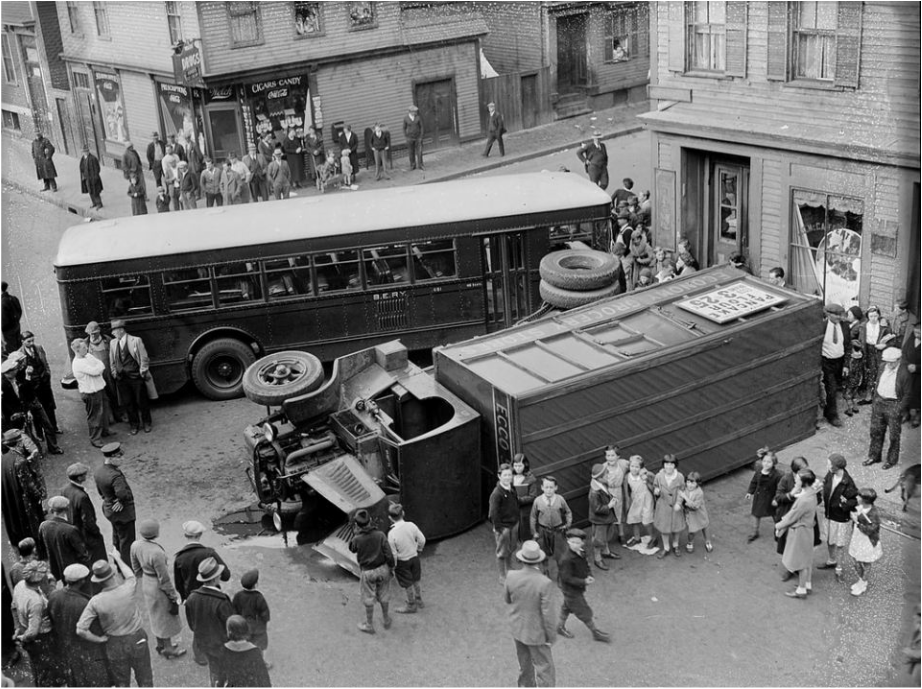
The tragic death of both parents occurred when Doris was aged twenty-one. One morning while crossing the road arm-in-arm, a passing lorry hit a bus, careered out of control, and struck them both down; killing them outright!
Overnight, Doris found herself rudderless with no one around to advise, instruct and order her life. She had become a relatively well-to-do woman who was no longer financially dependent on another. She inherited the large house, two thousand, and three hundred pounds, government bonds, a few hundred stocks and shares in Lloyds of London and her mother’s assortment of jewellery.
Having become financially independent at such an early age provided Doris with the freedom to do whatever she wanted to do with her future. Such was a freedom rarely experienced by any young woman of the times.
Overnight, Doris found herself rudderless with no one around to advise, instruct and order her life. She had become a relatively well-to-do woman who was no longer financially dependent on another. She inherited the large house, two thousand, and three hundred pounds, government bonds, a few hundred stocks and shares in Lloyds of London and her mother’s assortment of jewellery.
Having become financially independent at such an early age provided Doris with the freedom to do whatever she wanted to do with her future. Such was a freedom rarely experienced by any young woman of the times.
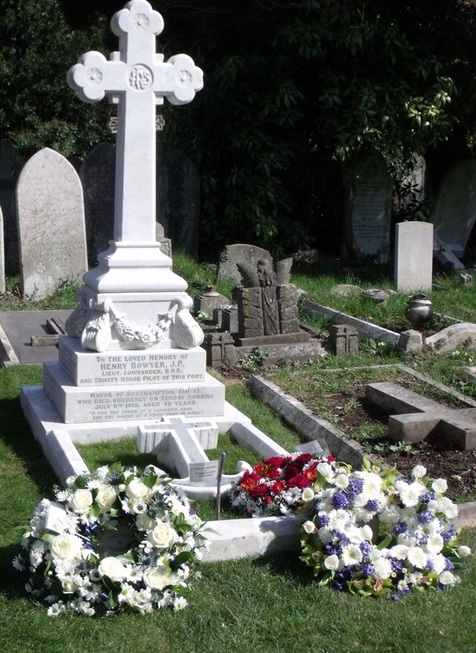
Having acquired such liberty however, Doris found she was unable to handle this great responsibility alone. Her daily routine had always been in the control of her father since childhood and whatever his impact had been on her life, she found herself once more needing a man to depend upon and to help organise and manage her affairs!
After her parent's deaths, this double bereavement left her emotionally bereft for the better part of the following year. After erecting a double grave plot and marble headstone which would have met with her father's approval, Doris would visit the grave most days with fresh flowers and pray for guidance regarding one thing or another.
xxxxxxxxxxxx
After her parent's deaths, this double bereavement left her emotionally bereft for the better part of the following year. After erecting a double grave plot and marble headstone which would have met with her father's approval, Doris would visit the grave most days with fresh flowers and pray for guidance regarding one thing or another.
xxxxxxxxxxxx
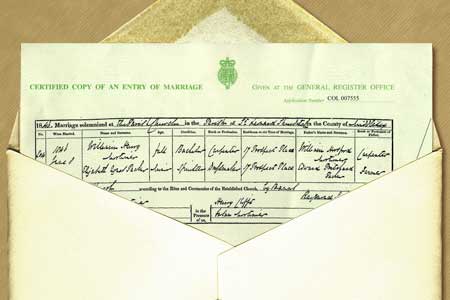
The things that affected Doris more than anything she was to learn after her parents’ death were revealed in the birth certificates of herself and parents, along with their marriage certificates. Foremost was the identity of her father.
Doris discovered that the man she had called ‘father’ all her life, wasn’t! When Doris first saw her birth certificate, in the space provided for her father’s name to be inserted was written, ‘Not known.’ Her mother had conceived her out of wedlock.
Doris discovered that the man she had called ‘father’ all her life, wasn’t! When Doris first saw her birth certificate, in the space provided for her father’s name to be inserted was written, ‘Not known.’ Her mother had conceived her out of wedlock.
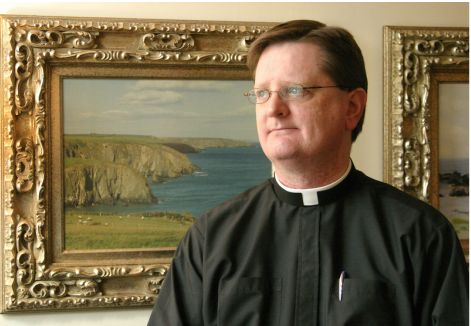
Her parent’s birth certificates also revealed that while the man she had always known as ‘father’ had been born in Liverpool, her mother had been born in County Clomel, Ireland. The marriage certificate of Mr and Mrs Nuttall, when viewed alongside Doris’ birth certificate, revealed that her mother was four months pregnant on the day of her marriage to Reginald Nuttall!
The only pieces of information that Doris was never to learn throughout her life was twofold; her own connection with Portlaw and the identity of her natural father. Doris was never to learn that the precise location of her conception was beside the flowing river in the fields of Curraghmore in Portlaw, County Waterford, Ireland. Though Doris knew she had been ‘delivered’ in a private Maternity Hospital in Liverpool, she never learned that she had been ‘conceived’ in Ireland by a father who was Portlaw born and bred. His name was John Flaherty, a Monsignor who was the parish priest of Portlaw at the time!
Having been ‘conceived’ in Portlaw, was a fact that was to prove a lifesaver for Doris in years to come, especially as Roman Catholics are brought up believing that life begins at the point of conception, not the moment of earthly delivery!
xxxxxxxxxxxx
The only pieces of information that Doris was never to learn throughout her life was twofold; her own connection with Portlaw and the identity of her natural father. Doris was never to learn that the precise location of her conception was beside the flowing river in the fields of Curraghmore in Portlaw, County Waterford, Ireland. Though Doris knew she had been ‘delivered’ in a private Maternity Hospital in Liverpool, she never learned that she had been ‘conceived’ in Ireland by a father who was Portlaw born and bred. His name was John Flaherty, a Monsignor who was the parish priest of Portlaw at the time!
Having been ‘conceived’ in Portlaw, was a fact that was to prove a lifesaver for Doris in years to come, especially as Roman Catholics are brought up believing that life begins at the point of conception, not the moment of earthly delivery!
xxxxxxxxxxxx

Three months after the burial of her parents, the attentions of churchgoer Patrick Storey were highly welcomed by the grieving Doris, who viewed the situation more superficially than was perhaps wise.
Patrick was a man of Roman Catholic persuasion, who attended ‘St. Anthony’s Catholic Church’ in Scotland Road almost as regularly as the parish priest served mass there.
Patrick was a man of Roman Catholic persuasion, who attended ‘St. Anthony’s Catholic Church’ in Scotland Road almost as regularly as the parish priest served mass there.

The church was one of the oldest in Liverpool and had stood there since 1833. Doris’ parents attended it, despite the distance from their family home. They had chosen it to become their regular church of worship because it was an imposing dwelling in the Liverpool skyline; a place they thought fit enough for a family of middle-class station and good breeding to be seen praying each Sunday.
Doris’ parents were strict Catholics and ensured that their only daughter was also indoctrinated in the Catholic faith. Doris on the other hand, never really felt that she belonged to the Roman Catholic branch of religion any more than any other religious body. She knew that her own religious upbringing, or indeed that of any other, was largely a matter of chance. Had her parents been born Protestant or Jewish, Doris knew that she too would have been brought up Protestant or Jewish, and would probably have felt just as committed or non-committed to those religions as she was to Roman Catholicism.
Nothing more than loneliness, familiarity, habit and weekend routine therefore ensured that Doris continued to attend Sunday service at ‘St Anthony’s’ after the death of her parents. Every week that Doris attended church following her parents’ funeral, Patrick Storey would make a point of speaking with her after Mass and enquiring how she was coping. To tell the truth, Doris welcomed his attention. Indeed anyone’s attention would have been gladly accepted, especially attention from such an attractive, sensitive and kind man as Patrick seemed.
Doris’ parents were strict Catholics and ensured that their only daughter was also indoctrinated in the Catholic faith. Doris on the other hand, never really felt that she belonged to the Roman Catholic branch of religion any more than any other religious body. She knew that her own religious upbringing, or indeed that of any other, was largely a matter of chance. Had her parents been born Protestant or Jewish, Doris knew that she too would have been brought up Protestant or Jewish, and would probably have felt just as committed or non-committed to those religions as she was to Roman Catholicism.
Nothing more than loneliness, familiarity, habit and weekend routine therefore ensured that Doris continued to attend Sunday service at ‘St Anthony’s’ after the death of her parents. Every week that Doris attended church following her parents’ funeral, Patrick Storey would make a point of speaking with her after Mass and enquiring how she was coping. To tell the truth, Doris welcomed his attention. Indeed anyone’s attention would have been gladly accepted, especially attention from such an attractive, sensitive and kind man as Patrick seemed.
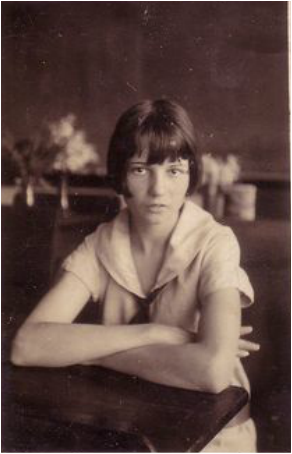
Doris told Mary one evening that approximate nine months into their courtship, Patrick proposed to her. She said that at the time, though flattered to have received a proposal to marry, she remained surprised that it would occur so soon into their brief courtship period. She asked Patrick for a little time to consider his proposal, during which she concluded that it only seemed natural to accept his offer of marriage. Doris loved Patrick in the only way that she was capable of loving any man; as a male companion and a good man who would protect and respect her. He seemed to possess all the main attributes that go to make up a good husband.
“But in all honesty, Mary,” Doris said, “I could not truthfully have said that I was ‘in love’ with him!” she added, “but it felt right at the time, and it made me feel safe by marrying him.”
They were married at ‘St Anthony’s’ and the couple commenced married life living from the home of Doris. Doris had given herself to Patrick; she had given her sacred promise to live with him ‘til death do they part. She had sworn on oath to be a dutiful wife and she had given him the ownership of her property, as she was now by law, considered his. He in turn had given Doris his name to add to her own, making her a wife of the times, an appendage to his masculine identity and endowing her with the right to be addressed as Mrs. Patrick Storey.
xxxxxxxxxxxx
“But in all honesty, Mary,” Doris said, “I could not truthfully have said that I was ‘in love’ with him!” she added, “but it felt right at the time, and it made me feel safe by marrying him.”
They were married at ‘St Anthony’s’ and the couple commenced married life living from the home of Doris. Doris had given herself to Patrick; she had given her sacred promise to live with him ‘til death do they part. She had sworn on oath to be a dutiful wife and she had given him the ownership of her property, as she was now by law, considered his. He in turn had given Doris his name to add to her own, making her a wife of the times, an appendage to his masculine identity and endowing her with the right to be addressed as Mrs. Patrick Storey.
xxxxxxxxxxxx
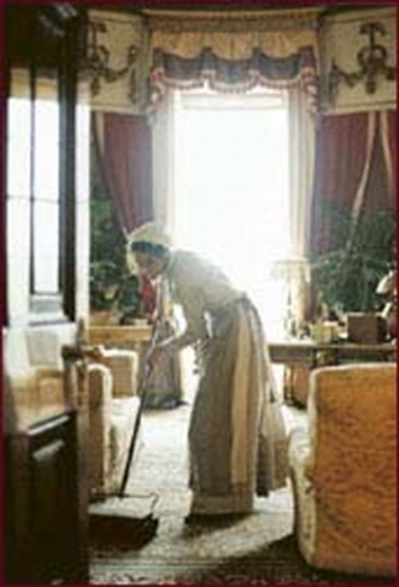
It was difficult to sell a large house at the time of a national recession and failing economy, so, after getting married, Patrick suggested that they stay living there until the economic climate improved, before downsizing to a smaller and more manageable property.
Meanwhile, Patrick said that by partitioning three rooms off on the second floor and letting them out to single men of good standing, they might profit from their excess house space. Patrick and Doris agreed that they would rent out the additional rooms only as self-contained flats and not offer full board.This would leave the ground floor where they lived, to keep clean only.
Since leaving school, Doris had never had the necessity of having to work outside the parental home. Being very bright, she had been encouraged by her father to take all the examinations she could, so that she might one day become a schoolteacher if she never married.
Doris was as clever as any male who was entitled to go to university, but the times governed that this was not an option open to her. Women could not matriculate or graduate from university, however clever they were, let alone become a member of one! The highly clever woman was permitted to attend lectures, sit examinations and even gain honours in those subjects. Being a woman however, they were unable to receive the degree to which, had they been men, their examinations would have entitled them.
‘Why should these male bastions of privileged education be open to mere women who had no entitlement to vote’ was the position men of the time generally adopted. As far as the vast majority of men was concerned, ‘a woman’s place was in the home, looking after the welfare of her husband and children, in that order!’
Meanwhile, Patrick said that by partitioning three rooms off on the second floor and letting them out to single men of good standing, they might profit from their excess house space. Patrick and Doris agreed that they would rent out the additional rooms only as self-contained flats and not offer full board.This would leave the ground floor where they lived, to keep clean only.
Since leaving school, Doris had never had the necessity of having to work outside the parental home. Being very bright, she had been encouraged by her father to take all the examinations she could, so that she might one day become a schoolteacher if she never married.
Doris was as clever as any male who was entitled to go to university, but the times governed that this was not an option open to her. Women could not matriculate or graduate from university, however clever they were, let alone become a member of one! The highly clever woman was permitted to attend lectures, sit examinations and even gain honours in those subjects. Being a woman however, they were unable to receive the degree to which, had they been men, their examinations would have entitled them.
‘Why should these male bastions of privileged education be open to mere women who had no entitlement to vote’ was the position men of the time generally adopted. As far as the vast majority of men was concerned, ‘a woman’s place was in the home, looking after the welfare of her husband and children, in that order!’

Having never had to work, Doris could see the sense in Patrick’s proposition to make an extra £1000 unearned income annually from getting three tenants to lease the second floor of their house. The couple converted the second floor where the three lodgers would have self-contained apartments. This tenant accommodation would include their own bedroom, lounge and small kitchen area, along with one large bathroom to share.
This enabled Doris and Patrick to earn an income from the property without having to put too much ongoing work into managing it, as well as keeping the spacious ground floor of the large house to themselves. The tenants would see to themselves and only a weekly change of bed sheets and toweling would be required for Doris to provide in exchange for an income of twenty pounds every Friday night.
This enabled Doris and Patrick to earn an income from the property without having to put too much ongoing work into managing it, as well as keeping the spacious ground floor of the large house to themselves. The tenants would see to themselves and only a weekly change of bed sheets and toweling would be required for Doris to provide in exchange for an income of twenty pounds every Friday night.

This arrangement suited Doris and Patrick nicely. They could earn additional income without feeling themselves servants to the working classes. Patrick did any handy work required throughout the house, as well as being able to carry on with his daily work at one of the local factory’s stock room. This left Doris to act out the role of homemaker and wife.
As a person raised in a working class household, Patrick found it strange at first, being surrounded by high quality fittings and furniture, along with precious ornaments around their house. In some ways, he was always conscious that he'd married into a higher social class.
Doris had intended to ask Patrick for his consent for her to work in the capacity of part-time teacher until children arrived on the scene, but the one time she had raised the subject shortly following their marriage, Patrick told her directly, “No wife of mine will ever work outside the matrimonial home.” Patrick may have married into her house and money, but as her lawful husband, she had married into his authority in all matters serious and worthy of decision.
As a person raised in a working class household, Patrick found it strange at first, being surrounded by high quality fittings and furniture, along with precious ornaments around their house. In some ways, he was always conscious that he'd married into a higher social class.
Doris had intended to ask Patrick for his consent for her to work in the capacity of part-time teacher until children arrived on the scene, but the one time she had raised the subject shortly following their marriage, Patrick told her directly, “No wife of mine will ever work outside the matrimonial home.” Patrick may have married into her house and money, but as her lawful husband, she had married into his authority in all matters serious and worthy of decision.

As regarding their sexual compatibility in the bedroom, unfortunately there was none! Doris, like many wives of the time, saw it as being her duty to oblige the bedroom advances of her lawful husband, but she never enjoyed the idea of being expected to respond in wifely duty to any man’s sexual whim. When they did make love, she did not find the experience either satisfying or pleasurable and did her best to feign enjoyment so it would be over quicker.
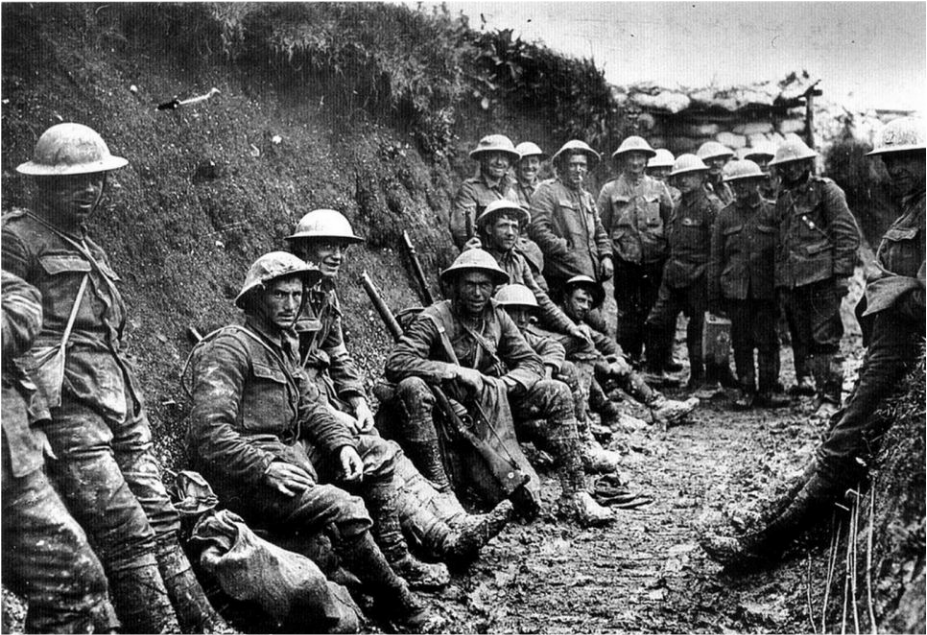
Doris told Mary that six months after their marriage, Patrick was ‘called up’ and sent to the battlefields of France. Doris found that looking after number 33 alone was a full time occupation and yet, she was inwardly pleased with keeping herself busy throughout the war.
When Mary and her two youngsters arrived on her doorstep, Doris found a friend with whom she could share female companionship, and the looking after of her daughters during the daytime providing her with more purpose in her life than she had previously experienced.
Upon hearing all this, Mary was pleased to learn that she her children were truly welcomed additions to the home of Doris instead of being mere inconveniences and hard work.
When Mary and her two youngsters arrived on her doorstep, Doris found a friend with whom she could share female companionship, and the looking after of her daughters during the daytime providing her with more purpose in her life than she had previously experienced.
Upon hearing all this, Mary was pleased to learn that she her children were truly welcomed additions to the home of Doris instead of being mere inconveniences and hard work.
